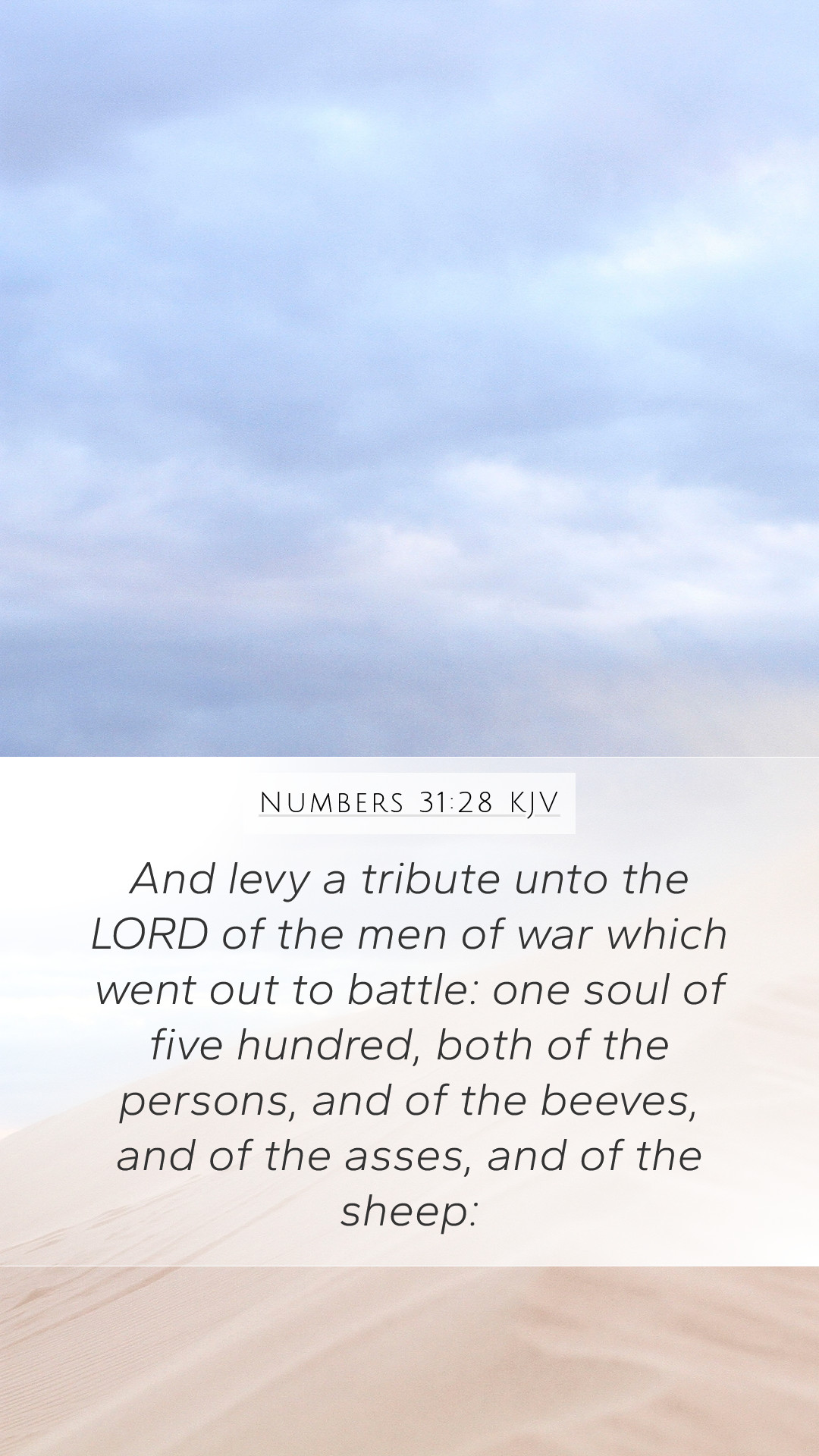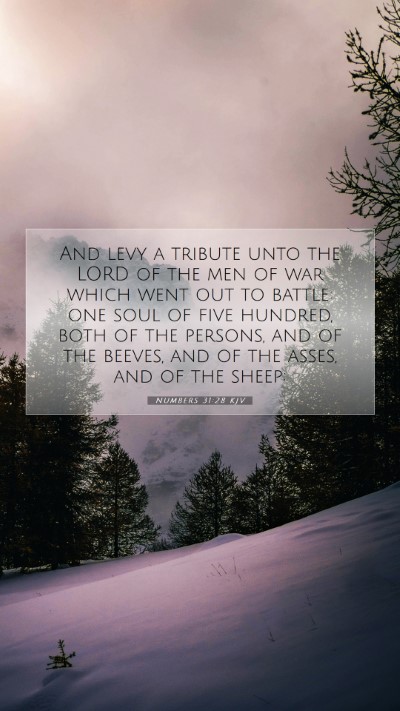Understanding Numbers 31:28
Numbers 31:28 states, "And levy a tribute unto the LORD of the men of war which went out to battle: one soul of five hundred, both of the persons, and of the oxen, and of the asses, and of the sheep." This passage reflects the instruction given to the Israelites following a battle against the Midianites. To gain a deeper understanding of this scripture, it is essential to examine its historical context, theological implications, and how it fits within the broader narrative of the Bible.
Historical Context
The book of Numbers details the journey of the Israelites through the wilderness after their exodus from Egypt. After numerous challenges, God commanded them to engage in various conflicts, including battles against neighboring peoples who posed threats to their existence and covenant with God. Numbers 31, specifically, recounts the war against the Midianites, a significant conflict that had implications for the Israelites' development as a nation.
Theological Significance
In Numbers 31:28, God's command to levy a tribute serves several purposes:
- Recognition of God's Sovereignty: The tribute signifies acknowledgment of God's authority over the spoils of war. It is an act of faith that recognizes God as the ultimate provider and protector.
- Support for the Tabernacle: The portion given to the Lord was likely intended for the maintenance of the tabernacle and the priests, highlighting the importance of supporting religious practices and institutions.
- Symbol of Unity: By establishing a common practice of giving tribute, the passage promotes unity among the war participants and the broader Israelite community.
Bible Verse Commentary
Public domain commentaries shed light on the implications of this verse:
- Matthew Henry: He notes that the levy acted as a reminder of God's providence and protection during warfare, emphasizing that everything the Israelites possessed was ultimately provided by God.
- Albert Barnes: Barnes highlights the importance of the tribute in maintaining the worship of God among the people, positing that such offerings reflect both gratitude and accountability to God's commandments.
- Adam Clarke: Clarke suggests that this practice illustrated the principle of dedicating a portion of every gain to God, viewing it as a standard for future generations in both warfare and daily life.
Application in Modern Christianity
This verse can be applied to contemporary believers in several ways:
- Recognizing God's Provision: Just as the Israelites were instructed to acknowledge God's provision through their offerings, modern Christians are encouraged to recognize and thank God for the blessings in their own lives.
- Commitment to Community: The idea of giving a portion for communal use can serve as a model for supporting church activities, missions, and charity.
- Faith in Action: This passage motivates believers to act in faith, ensuring that their contributions to God’s work are prioritized in their lives.
Additional Bible Cross References
For a more comprehensive understanding, consider examining these related verses:
- Exodus 30:11-16: Instructions on obtaining a census and the atonement money, which also reflects God's sovereignty over His people.
- Leviticus 27:30: Discusses the tithe and the importance of dedicating a portion of one’s possessions to God.
- 2 Corinthians 9:7: New Testament principles on giving with a cheerful heart.
Conclusion
In conclusion, Numbers 31:28 offers profound insights into the nature of giving and recognizing God's role in our lives. Through the practice of tribute, we see an illustration of faith, community responsibility, and the importance of maintaining a relationship with God. By studying such verses, individuals can gain a deeper appreciation for the Biblical principles of stewardship and gratitude within their personal lives and communities. This understanding enriches Bible study sessions and encourages thoughtful discussions in Bible study groups, online Bible study, and other Bible study resources.


